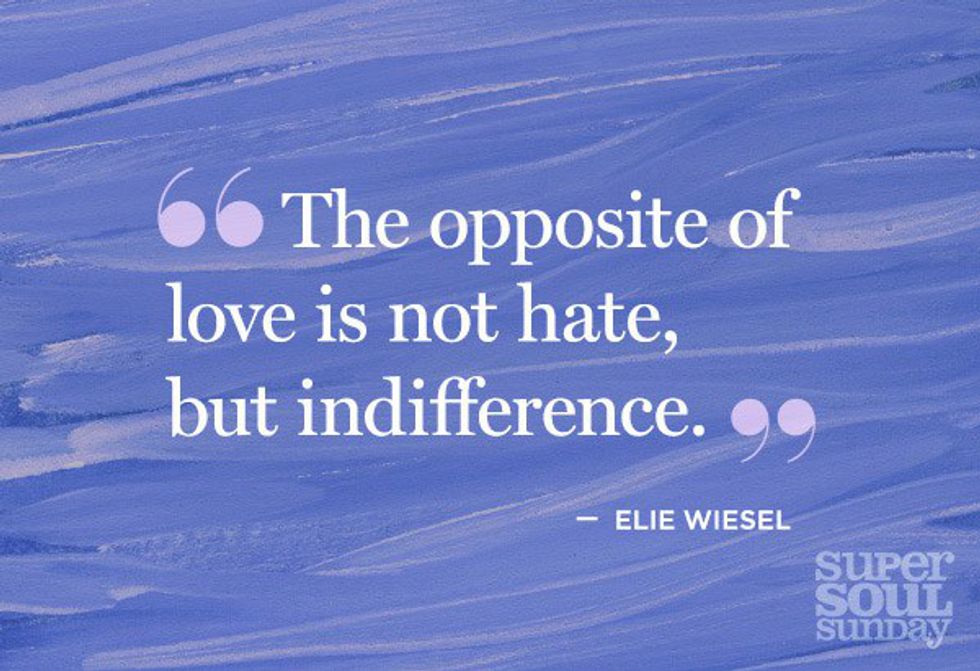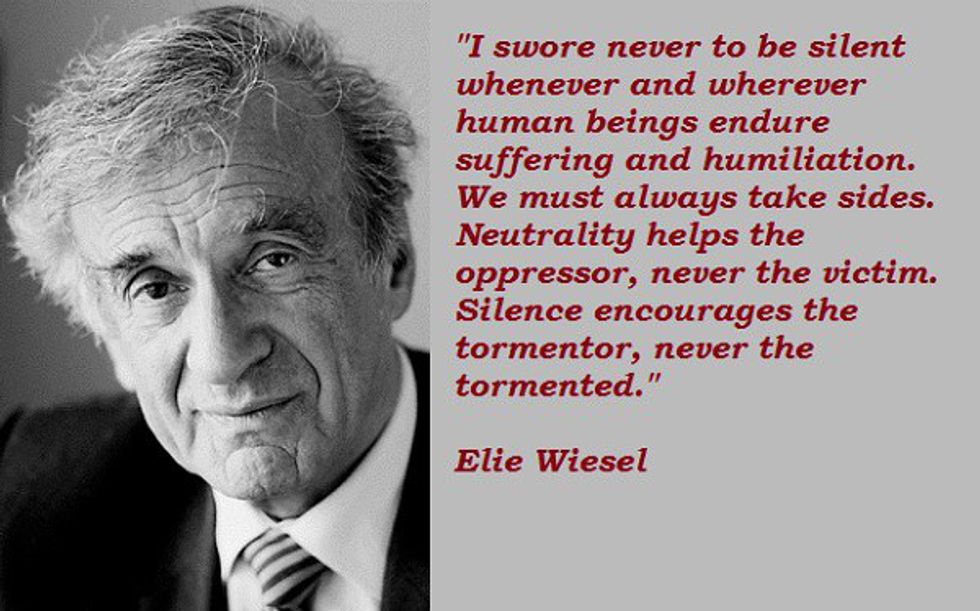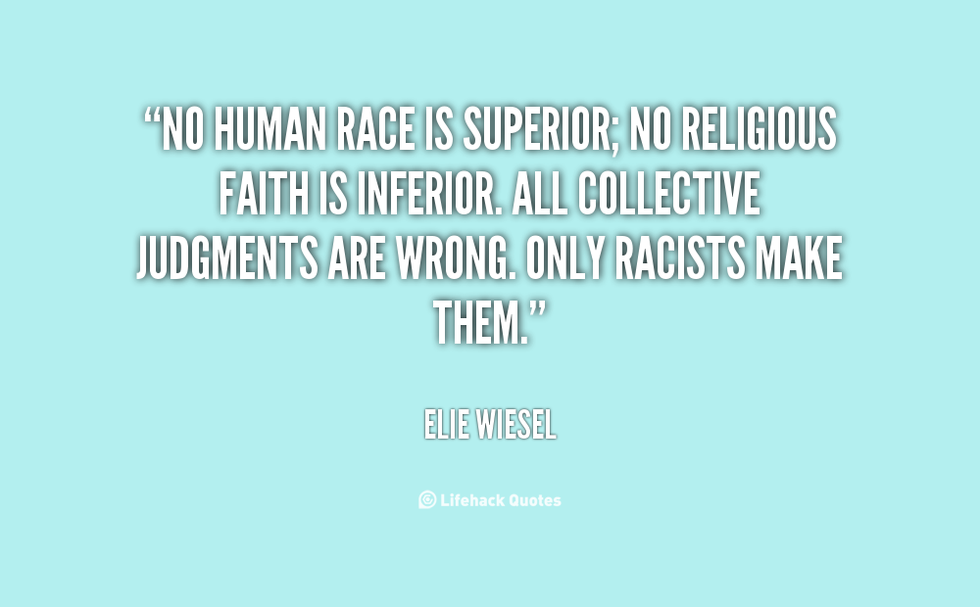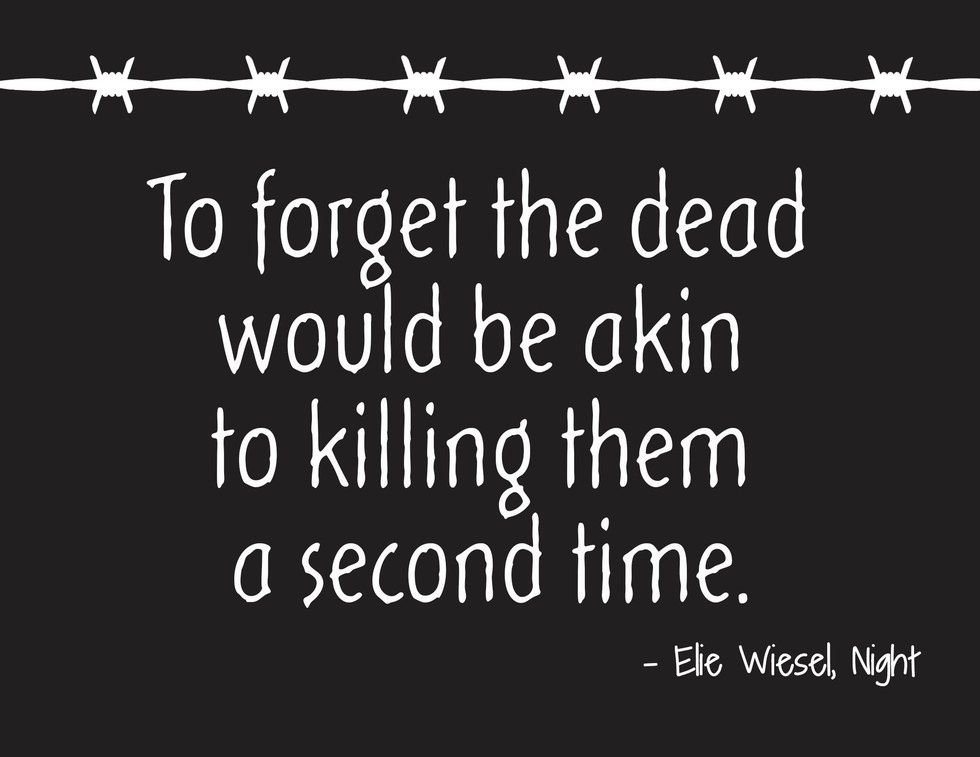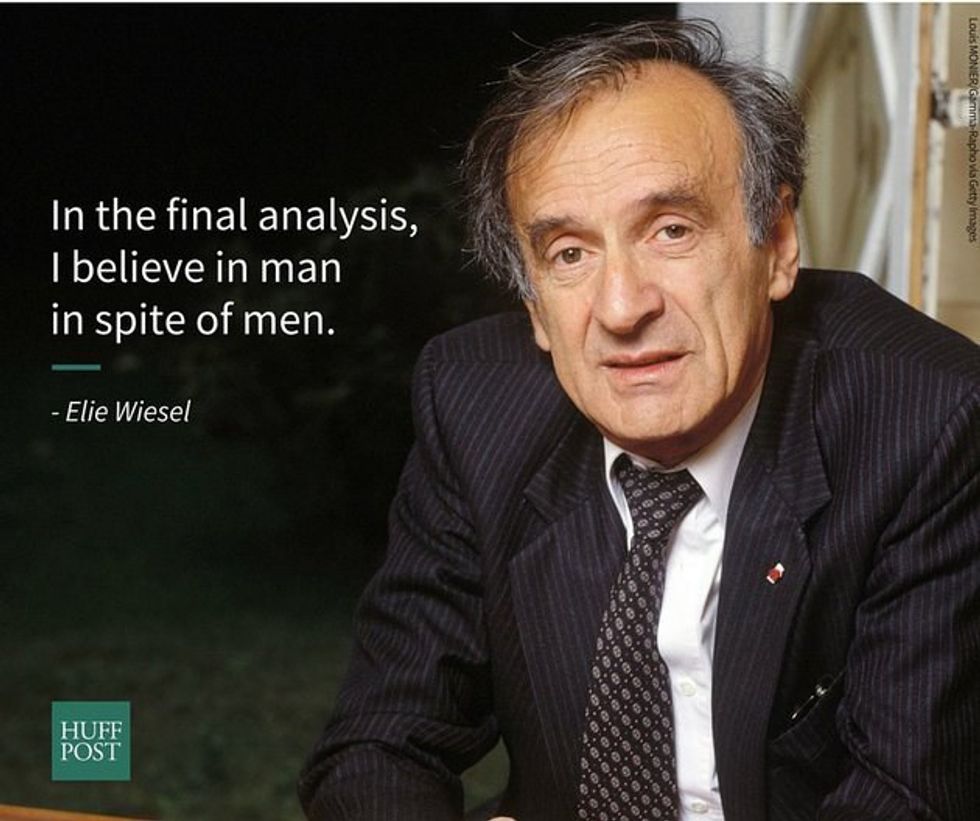On July 2, 2016, Elie Wiesel died peacefully, thousands of miles from Romania, where he was born, and thousands of miles from the Auschwitz concentration camp where he was sent at the age of 15. Author, humanitarian, and Holocaust survivor, Mr. Wiesel spent his life working for peace and human decency. He won the Nobel Peace Prize in 1986, and is best known for his book "Night", published in 1958, which detailed his and his family's time in a Nazi concentration camp.
After he won the Nobel Peace Prize in 1986, he and his wife set up the Elie Wiesel Foundation for Humanity, where the mission "is to combat indifference, intolerance and injustice through international dialogue and youth-focused programs that promote acceptance, understanding and equality."
These weren't his only contributions to the world, though. His words are extremely powerful, and through those words Mr. Wiesel taught us so much.
1. About indifference
"The opposite of love is not hate, it's indifference. The opposite of art is not ugliness, it's indifference. The opposite of faith is not heresy, it's indifference. And the opposite of life is not death, it's indifference."
2. About dreams
"Just as man cannot live without dreams, he cannot live without hope. If dreams reflect the past, hope summons the future."
3. About the importance of taking sides
"I swore never to be silent whenever and wherever human beings endure suffering and humiliation. We must always take sides. Neutrality helps the oppressor, never the victim. Silence encourages the tormentor, never the tormented. Sometimes we must interfere."
4. About who our lives belong to
"We know that every moment is a moment of grace, every hour and offering; not to share them would mean to betray them. Our lives no longer belong to us alone; they belong to all those who need us desperately."
5. About superiority and inferiority
"No human race is superior; no religious faith is inferior. All collective judgements are wrong. Only racists make them."
6. About the light
"People say occasionally that there must be a light at the end of the tunnel, but I believe in those times there was light in the tunnel. The strange way there was courage in the ghetto, and there was hope, human hope, in the death camps. Simply an anonymous prisoner giving a piece of his bread to someone who was hungrier than he or she; a father shielding his child; a mother trying to hold back tears so her children would not see her pain - that was courage."
7. About remembering
"To forget would be not only dangerous but offensive; to forget the dead would be akin to killing them a second time."
8. About pessimism and optimism
"I am pessimistic because I don't trust history. But at the same time, I am optimistic. Out of despair, one creates. What else can one do? There is no good reason to go on living, but you must go on living. There is no good reason to bring a child into this world but you must have children to give the world a new innocence, a new reason to aspire towards innocence. As Camus said, in a world of unhappiness, you must create happiness."
9. About believing
"In the final analysis, I believe in man in spite of men."
10. About hope
"I know and I speak from experience, that even in the midst of darkness, it is possible to create light and share warmth with one another; that even on the edge of the abyss, it is possible to dream exalted dreams of compassion; that it is possible to be free and strengthen the ideals of freedom, even within prison walls; that even in exile, friendship becomes an anchor."
Rest in Peace, Mr. Wiesel. Thank you for the things you have taught us, and for your contributions to this world.




